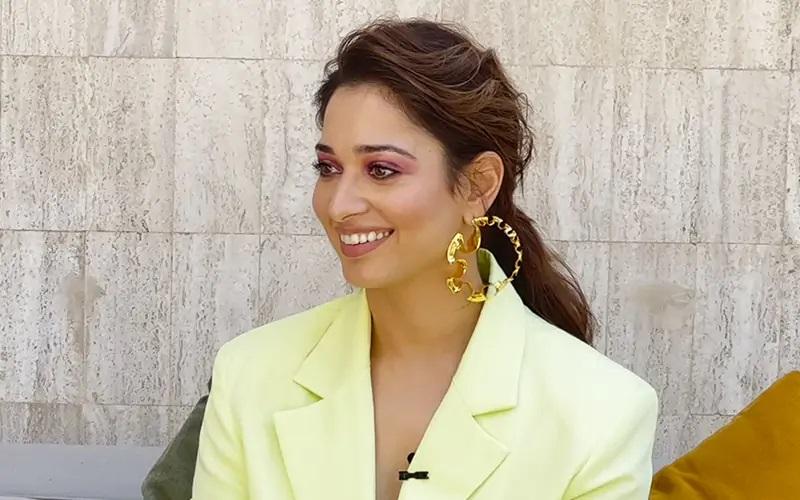Cannes 2022: Tamannaah Bhatia On How The Best And Worst Decisions Of Her Career Have Shaped Her

- 22 Nov 2022 12:00 AM
- 123 views
Tamannaah Bhatia makes her Cannes debut this year. She talks about the lessons she’s learned through her career, the difference between an actor and a heroine and how the cinematic perceptions of women have changed over time:
I read that you started working at 15, which is a very tender age to enter a tough business. What did you learn and how did that experience shape you to be the actor you are today?
When I was 15 and I started working, the kinds of roles that female actors got to play were very limited. We didn’t have a lot of variety. There were a lot of cliches we were constantly subjected to. I went with the flow of what was happening to me. There was also a feeling of wanting to consolidate (my position in the industry). I was lucky to have great commercial success early on in my career in the South Indian film industry. So I used that, I consolidated myself and I slowly came to a point where I was like, ‘Times have changed and people have woken up to the idea of not presenting women as the ones who have to be rescued. They’re ready to present women as the rescuers.’ I began to enjoy that and am part of that in terms of the cinema I’m putting out. Women have always been presented as emotionally strong, but physical strength is something that hasn’t been tapped into. It’s not spoken about or presented as much. Now is the time to bring out these aspects.
I’m doing a film called Babli Bouncer, which really excited me because (director) Madhur Bhandarkar said, ‘I want you to play a female bouncer.’ I said yes because I hadn’t heard of a film being made about a female bouncer. And she’s Haryanvi, and she has a strong dialect. I’m from Mumbai, I’ve worked in a South Indian industry for so long, which has given me so much love. I’m more fluent in Tamil and Telugu than I am in my mother tongue. So now is the time to prove that language is not the barrier because there are so many dialects India has. It’s such a beautiful country with so many accents and languages and cultures. I’m just enjoying exploring that.
When you look back at the years that you’ve been working, how do you analyse your immense success in the South vs the missteps in Hindi cinema. What did you do differently and what did you learn from the mistakes?
Both the best decisions in my career, and the worst, are things I wasn’t planning on doing. I didn’t know where I could go because both decisions seemed right at the time. I’m very open about it, if I don’t like a film, I’ll say, ‘It didn’t do what it could’ve done.’ I believed in a film like Himmwatwala as much as I believed in a film like Baahubali. The one thing about both films is that I wasn’t prepared for either. I learnt on the job and that’s the beauty of being an actor – that you’re discovering constantly and you’re evolving constantly. I’m not the same person who did Himmatwala. I’m not the same one who did Baahubali. I’ve moved on from both. I celebrate both. I think the mistakes teach you a lot more than the success does because it’s only when you’re making mistakes that you’re discovering what’s not authentic about yourself. I think today, everyday is about authenticity and putting your most authentic self out there. I feel so empowered right now to be able to put that out there. I’m glad that it happened.
You also said that you came here to be an actor and you became a heroine? But my sense is now, to be one, you have to be both. I don’t think that if the acting part is shaky, you can be a star. Would you agree?
I feel like it is your decision to be an actor, but the audience decides whether you’re a star. That is not in your hands. I was lucky that I became a star, because of the love of so many cinegoers. But that image doesn’t stop me from being the actor I want to be. Back in the day, our options were a lot more limited. The pandemic has changed how people view content and so today, we’ve become performers over everything else. So what we do, even in an Instagram post, is as important as what we put in a feature film.





































